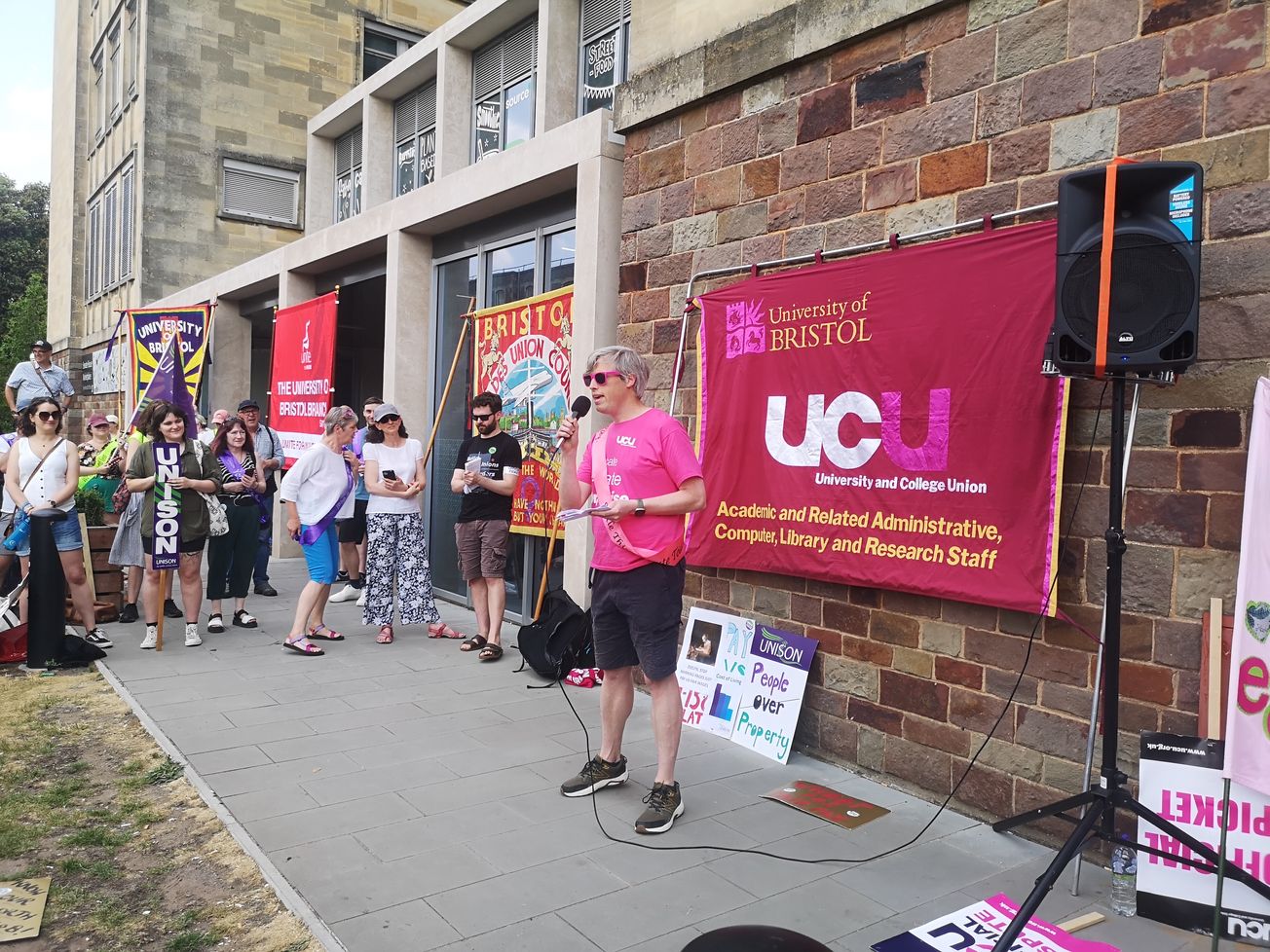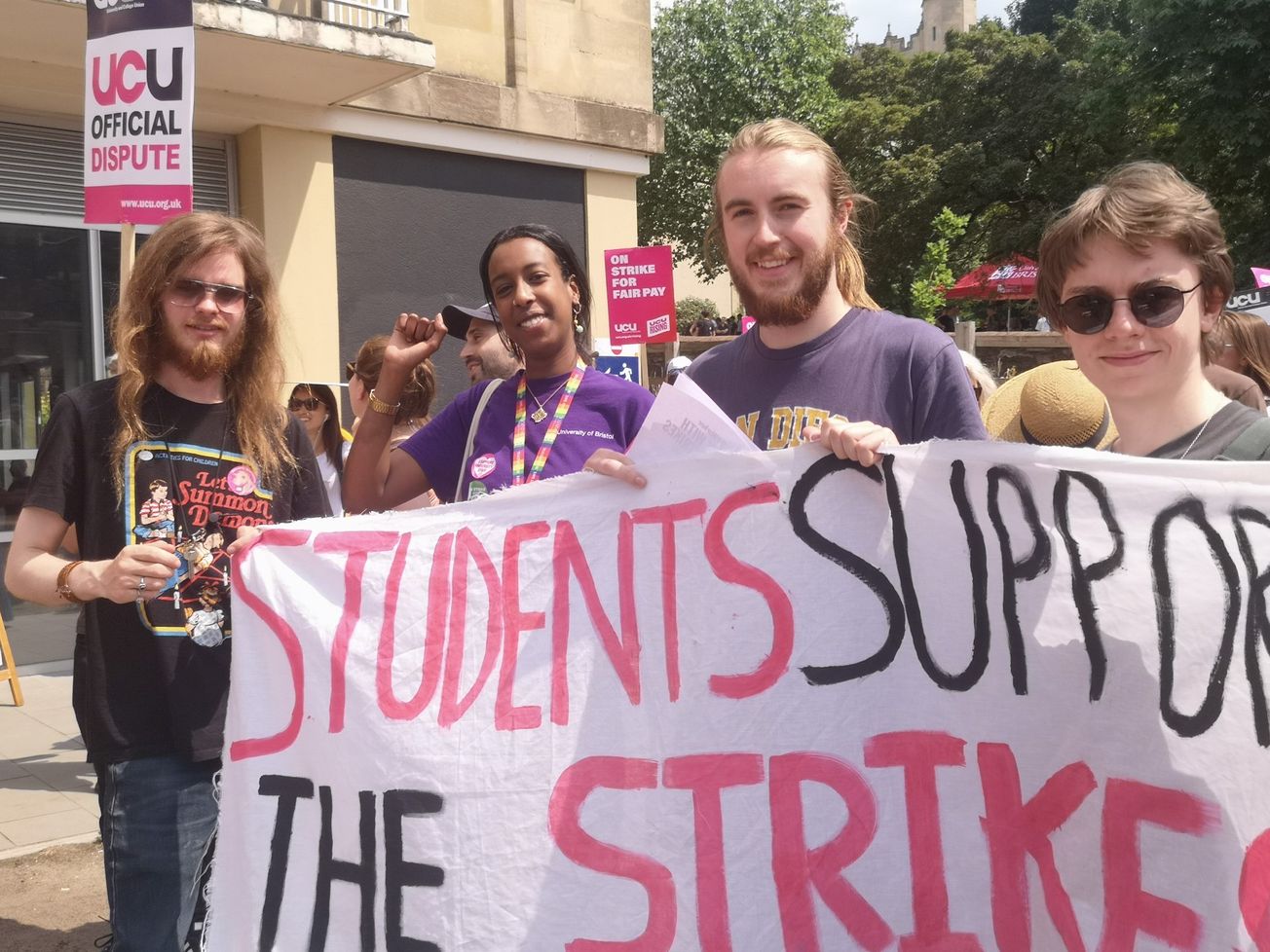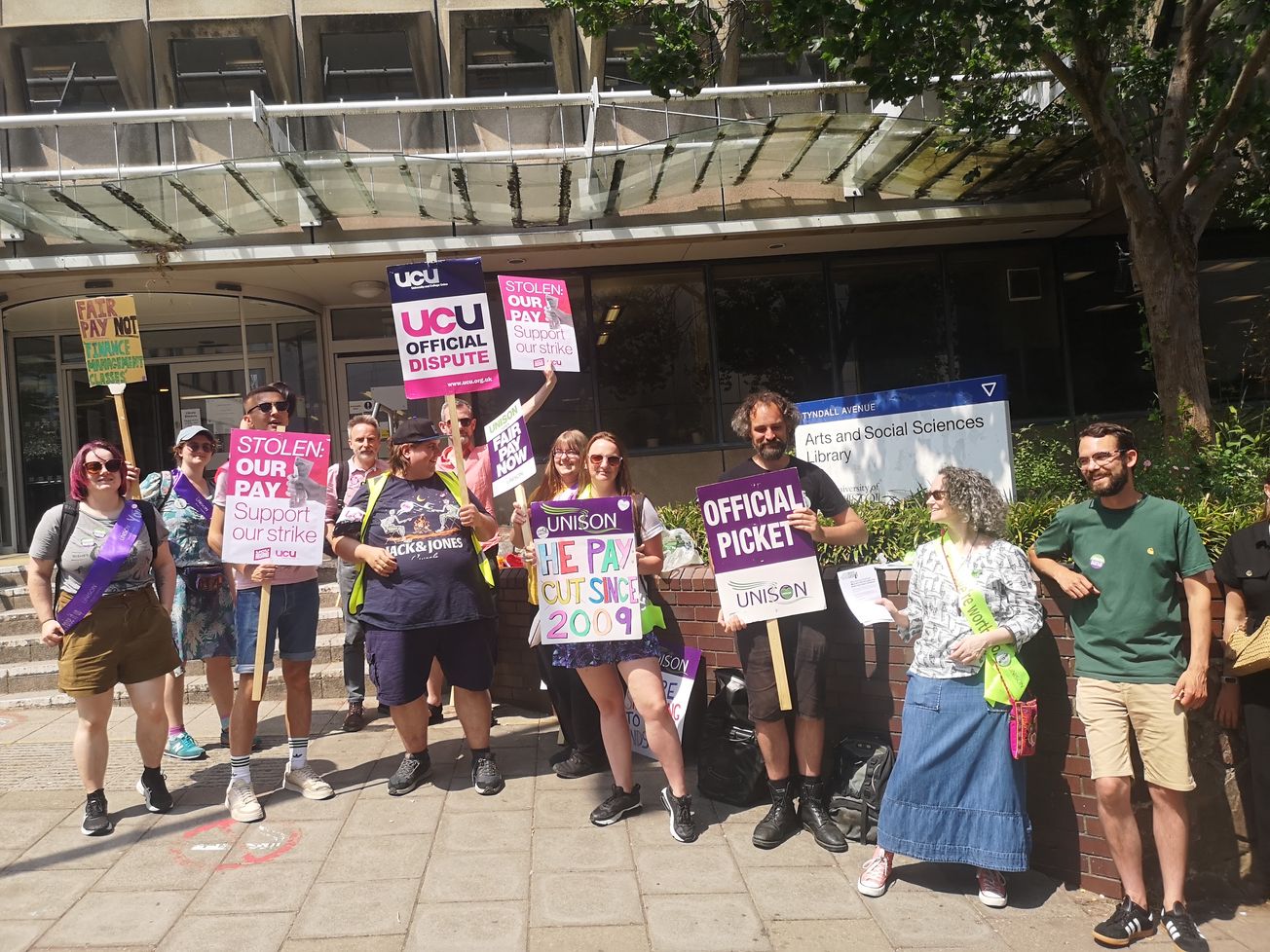University of Bristol's Vice-Chancellor Hugh Brady responds to the first two weeks of UCU strike action, giving his perspective on the situation.
The past week has undoubtedly been one of the most difficult in my (almost) decade-and-a-half as a university vice-chancellor.
Why? The unprecedented emotion, worry, anger and fractured collegiality in our University community.
The reason? The national dispute between Universities UK (UUK, of which Bristol is a member) and the Universities and College Union (UCU, of which many of our staff are members) over the proposed reform of the USS pension scheme.
I was honoured to accept the position of Vice-Chancellor at the University of Bristol in 2015 because of its reputation as one of the world’s leading centres of education, research and scholarship, and the wonderful spirit of collegiality and generosity that permeates every conversation, committee, corridor and coffee shop within our great institution.
Indeed, as a relatively recent arrival to Bristol who has spent decades working in universities in Ireland, Canada and the USA, I can say with confidence that this level of collegiality throughout our community is rare.
The issue of pensions is a very emotive one. We are all concerned about what will happen to us in older age. No one wants to be in a position where they fear they may struggle financially after decades of work.
In academia, concerns over pensions are amplified. Most academics choose their careers because of their passion for teaching and research. In doing so, they very often decline better-paid options knowing this compromise is softened by the expectation of a good pension. Our professional staff also often choose to work in the sector because of their belief in the power of education.
When it comes to pensions, universities must balance several factors. We fully understand the importance of a good pension to the recruitment, retention and morale of top-quality staff – both now and into the future. But we must reconcile our investment in pensions with many other needs such as investment in academic posts and the overall student experience. Our pension schemes need to be adequately funded so we can meet our obligations to both current and future staff.
So, what has changed to persuade UK universities to take the difficult decision to support the reform of the USS scheme? This is well-trodden ground, but in brief: the most recent appraisal of the scheme’s health indicated a growing deficit that required a further increase in employer and employee contributions. This is, sadly, a familiar picture for many defined-benefit pension schemes nowadays and there’s a lot at stake here for the sector: if we ignore the warning signs, we may jeopardise the benefits that future generations receive.
Last autumn the government’s Pensions Regulator expressed concern about how the USS scheme was being assessed. As a result, the USS Trustee took a more prudent approach, and the outcome of that updated valuation influenced the proposals for changing the scheme. Our other defined benefit pension scheme (UBPAS) has already gone through similar reforms.
The valuation is where the basic disagreements lie: UCU questions the methodology used by USS to value the pension plan and assess the risk to the universities. They have presented expert opinion and analysis to support their contention, most recently at our meeting of the University Senate last Monday. They contend that the plan is healthy and that the changes are unnecessary or, at the very least, too severe. They argue that the reforms proposed by UUK would result in each member of staff losing hundreds of thousands of pounds over the lifetime of their pension. Against this background, I can fully understand why our colleagues are worried and angry, and why many students feel compelled to support them.
I’m a clinician-scientist by training – a nephrologist with expertise in the causes and treatment of kidney disease, dialysis and transplantation. I’m familiar with complexity. So, when I say that pensions are a notoriously complex field, I don’t use the word lightly. But I struggle to understand how two sides, both equally passionate about higher education, can be so far apart in their valuations and interpretations. I know I’m not alone in this, nor in hoping that these differences can be reconciled as soon as possible.
With other colleagues across the sector, I have publicly expressed my support for further negotiation and discussion to resolve these differences and I am pleased and relieved that both sides have agreed to go to arbitration in an effort to resolve the dispute. It will only be resolved if both sides enter the process in good faith and with full transparency regarding the modelling and valuation. Only then can all parties understand the risk and agree a long-term solution.
I want to thank our students for their patience and understanding during this national dispute and to thank all staff for their continued professionalism and for all the hard work and dedication they give to our University community. During this challenging period, I encourage all our community to not lose sight of the collegiality that sets Bristol apart, and to continue to nurture it for future generations.
Professor Hugh Brady
Vice-Chancellor and President
Featured image: University of Bristol Press Office









